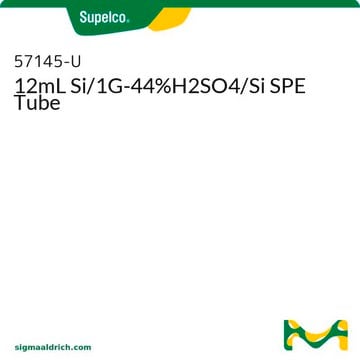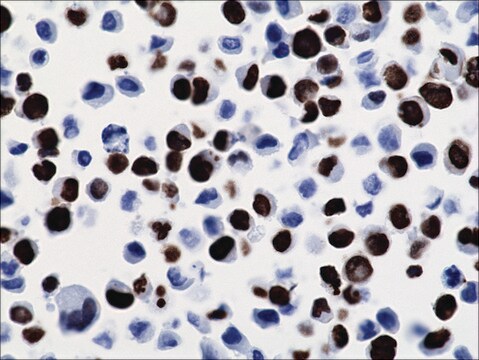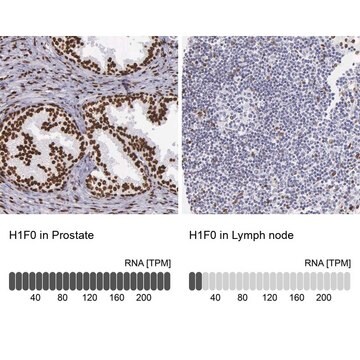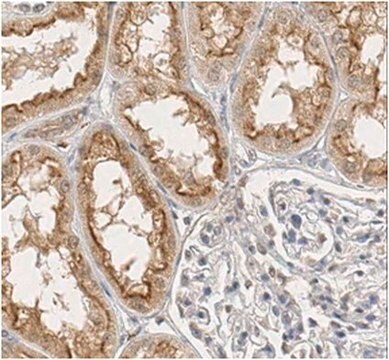MAB2058Z
Anti-Integrin β4 Antibody, clone ASC-3, azide free
clone ASC-3, Chemicon®, from mouse
Synonym(e):
CD104, MAB2058
About This Item
Empfohlene Produkte
Biologische Quelle
mouse
Qualitätsniveau
Antikörperform
purified immunoglobulin
Antikörper-Produkttyp
primary antibodies
Klon
ASC-3, monoclonal
Speziesreaktivität
human
Hersteller/Markenname
Chemicon®
Methode(n)
flow cytometry: suitable
immunohistochemistry: suitable
immunoprecipitation (IP): suitable
Isotyp
IgG1κ
NCBI-Hinterlegungsnummer
UniProt-Hinterlegungsnummer
Versandbedingung
dry ice
Posttranslationale Modifikation Target
unmodified
Angaben zum Gen
human ... ITGB4(3691)
Verwandte Kategorien
Spezifität
Immunogen
Anwendung
Zellstruktur
Integrine
Physikalische Form
Lagerung und Haltbarkeit
Hinweis zur Analyse
A431 cell lysate
Sonstige Hinweise
Rechtliche Hinweise
Haftungsausschluss
Sie haben nicht das passende Produkt gefunden?
Probieren Sie unser Produkt-Auswahlhilfe. aus.
Lagerklassenschlüssel
12 - Non Combustible Liquids
WGK
WGK 2
Flammpunkt (°F)
Not applicable
Flammpunkt (°C)
Not applicable
Analysenzertifikate (COA)
Suchen Sie nach Analysenzertifikate (COA), indem Sie die Lot-/Chargennummer des Produkts eingeben. Lot- und Chargennummern sind auf dem Produktetikett hinter den Wörtern ‘Lot’ oder ‘Batch’ (Lot oder Charge) zu finden.
Besitzen Sie dieses Produkt bereits?
In der Dokumentenbibliothek finden Sie die Dokumentation zu den Produkten, die Sie kürzlich erworben haben.
Unser Team von Wissenschaftlern verfügt über Erfahrung in allen Forschungsbereichen einschließlich Life Science, Materialwissenschaften, chemischer Synthese, Chromatographie, Analytik und vielen mehr..
Setzen Sie sich mit dem technischen Dienst in Verbindung.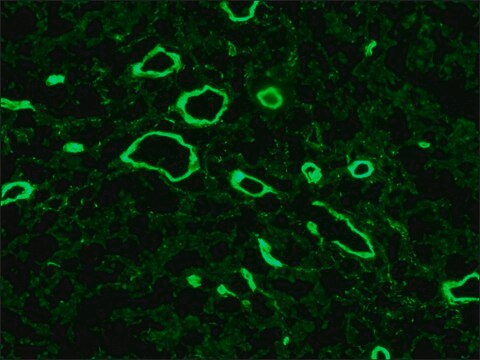
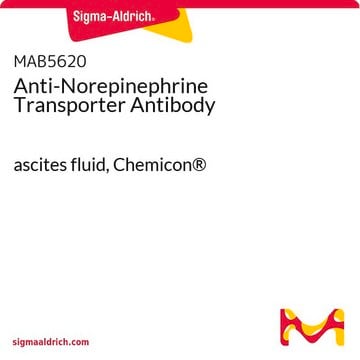



![Capillary Column Nut (fits Agilent [MS detector] and PerkinElmer®), hexagonal wrenchtight version pkg of 5 ea](/deepweb/assets/sigmaaldrich/product/images/204/027/684d1d8a-ec5f-4fca-a84c-27c8edf28563/640/684d1d8a-ec5f-4fca-a84c-27c8edf28563.jpg)
